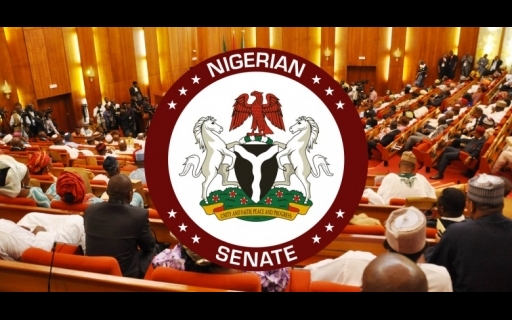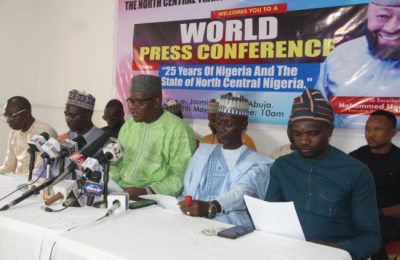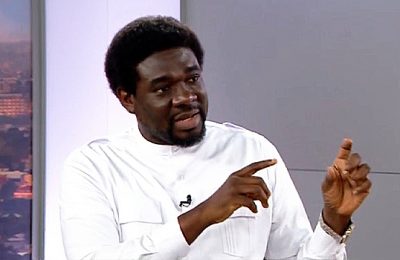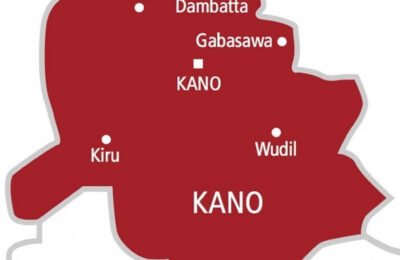Lead Director of the Centre for Social Justice (CSJ), Mr Eze Onyekpere, has called for the removal of hundreds of non-priority projects worth £512.356 billion from the 2024 budget proposal being considered by the Senate and House of Representatives’ Standing Committees.
The report, seen by the Nigerian Tribune, was titled ‘Frivolous, Inappropriate, Unclear and Wasteful Estimates in the 2024 Federal Appropriation Bill’ and was circulated to the offices of the 109 Senators and 360 members of the House of Representatives on Wednesday.
According to the report published by the Centre for Social Justice for Citizens Wealth Platform, Mr Onyekpere observed that with the aggregate expenditure of £27.5 trillion and expected revenue of £18.32 trillion and a deficit of £9.18 trillion, debt service will amount to £8.493 trillion.

From the analysis of the non-priority projects identified, CSJ recommended the removal of 10 projects worth £22.313 billion from the State House (Headquarters) and Tate House Operations – Vice President.
According to him, the removal of the line items will enable the country to save £3.500 billion for the construction of the office complex for Special Advisers (SAs) and Senior Special Advisers (SSAs); £3.500 billion for the acquisition, renovation, rehabilitation, and furnishing of the State House annex; £8.280 billion for the annual routine maintenance of mechanical/electrical installations of the Villa; £4 billion for the purchase of State House operational vehicles; £2 billion for the replacement of SUV vehicles, among others.
He also recommended the removal of some budget items under the office of the Chief of Staff to the President, namely: £5 billion for the renovation of Dodan Barracks Presidential Lodge; £10 billion for the full digitalization of the entire State House and Lagos State offices and Quarters; totaling £15 billion.

According to him, a total sum of £3.340 billion is to be saved under the Federal Ministry of Budget and Economic Planning; £10.250 billion for Presidential Air Fleets (State House) out of the total sum of £20.5 billion proposed in the budget.

The Organisation also referred to Orosanye’s Committee on reforming the ‘cost of governance’ – “The Committee noted the widely held view of the abuse of the utilization of Service Wide Votes. It was the view of the Committee that budget heads currently captured under that vote could actually be captured either under specific MDAs or the Contingency Vote. Considering the constitutional provision for the Contingency Vote, it is believed that the Service Wide Vote is not only an aberration but also an avoidable duplication.
“The Committee, therefore, recommends that Service Wide Votes should be abolished, and items currently captured under it transferred to the Contingency Vote or to the appropriate MDAs.”
The Organisation further called for saving £358.511 billion under the Service Wide Vote proposal; £10 billion proposed for the Intervention fund under the Federal Ministry of Humanitarian Affairs and Poverty Alleviation, among others.
In his introductory message, Mr Onyekpere said: “Nigeria is undergoing an economic and fiscal crisis of monumental proportions. The currency has been devalued officially to £750 to 1 USD while the street value is above £1000 to 1 USD.
“Inflation is at an all-time high of 28% year on year while Nigerians living in multi-dimensional poverty are in excess of 130 million. Debt service gulps over 80% of revenue, and insecurity rules the land.
“In the 2024 executive budget proposals, the aggregate expenditure is £27.5 trillion, and the expected revenue is £18.32 trillion, and the deficit is £9.18 trillion. Debt service will gulp £8.493 trillion.
“With this scenario, the reasonable expectation is that every available resource in the 2024 federal budget proposal would be targeted at concrete deliverables. Indeed, frivolous, inappropriate, unclear and wasteful expenditure should be eliminated to the minimum.
“A large part of the funding of the budget will be borrowed, and it will be foolhardy to borrow and waste the borrowed funds. There are so many projects that are vaguely described and without location; a play on words using terms like empowerment and sensitisation, etc.
“The State House and Presidency vote is suffused with bloated routine maintenance, renovation and repair work, the purchase of SUVs and vehicles in the billions of pounds. These are not priorities for spending borrowed money. Service-wide votes continue the tradition of lump sum votes for vaguely described expenditure items which at the end of the year cannot guarantee value for money.
“The vote of the Ministry of Agriculture and Food Security is suffused with projects that have no locations, class of beneficiaries and sometimes no clear deliverables. This is the case in over 90% of the projects. This has been the norm in agriculture budgeting over the years.
“The most troubling part of this proposal is that many of the unclear proposals are to be funded from debt. Borrowing and demonstrating a clear intent to mismanage the resources is economic sabotage of the highest order and should be discontinued. The vote needs to be totally repackaged, and these nebulous expenditure proposals made clear and to be of benefit to Nigerians.
“The 12 River Basin Development Authorities sit on thousands of acres of public land and over the years, get allocations for tractors, farm equipment, implements, fish and livestock replenishment, seeds, processing machinery and implements, etc.
“They should be revenue centres that remit billions of Naira to FGN instead of the current approach where they gulp money without any meaningful contribution to the revenue. The land, machinery and other infrastructure could be capitalized for collaboration with the private sector for commercial farming that will generate revenue for government. At a minimum, RBDAs should be compelled to fund their personnel and recurrent expenditure pending when they are fully weaned of public funding.
“There are many new and ongoing projects proposed by the National Rural Electrification Agency without geographic location and class of beneficiaries beyond stating the name of the state or the geopolitical zone. It Is imperative for NASS to verify that such projects are actually ongoing or the exact locations of the new ones before approval.
“The locations should be included in the approved budget. The Agency’s budget proposal is a clear example of how not to present a budget proposal. There seems to be a deliberate attempt to propose interventions in a way and manner that cannot be monitored and project locations will only be known to the Agency.
The meagre resources allocated to the Federal Ministry of Works have been so thinly spread across hundreds of projects to the extent that money will be spent without any concrete improvements in the works sector.
“In the interim, NASS should prune down the number of projects and focus on a few which can be improved from available resources. Otherwise, voting £100m, £200m to major road projects (even when prudently spent) will amount to a waste of resources. Some roads even got as low as £10m. This is a joke taken too far. The Federal Roads Authority Bill needs to be enacted to provide other sustainable sources of road financing and Management apart from the treasury,” he noted.
READ ALSO FROM NIGERIAN TRIBUNE








